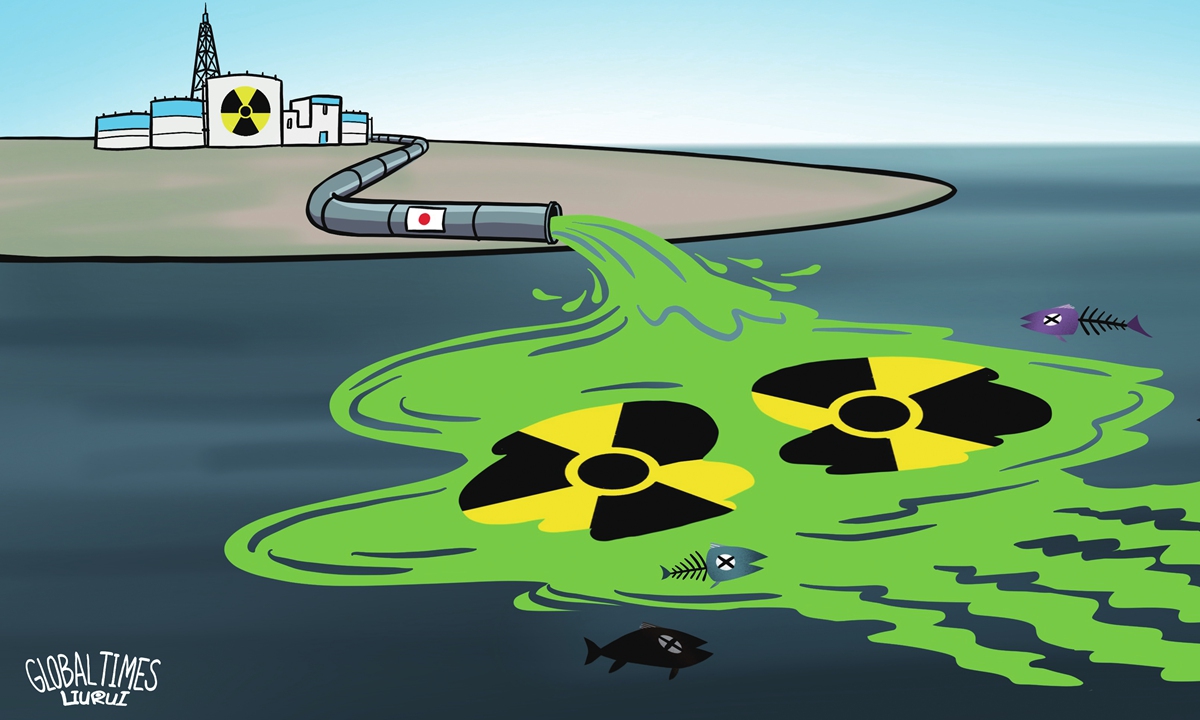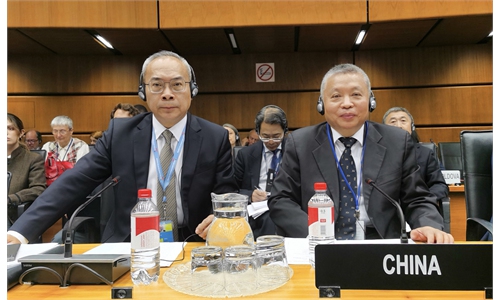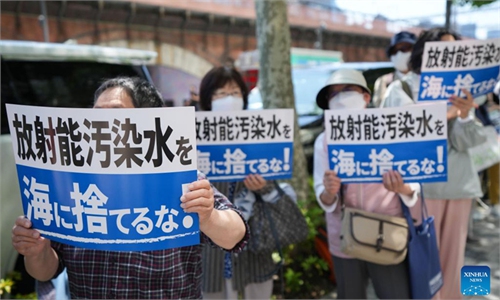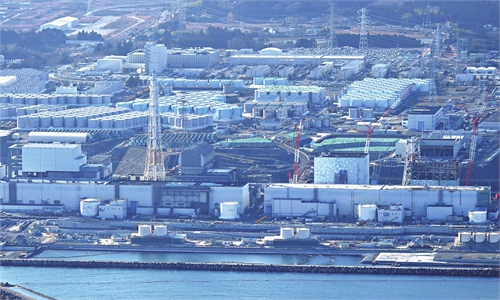
Illustration: Liu Rui/GT
The International Atomic Energy Agency (IAEA) Board of Governors convened its regular meeting in Vienna from June 5 to 8. The opening day was also World Environment Day, and the closing day was World Oceans Day. During this period, many concerns were made about the marine environment. However, Japan, in defiance of the strong opposition of the international community, has been pressing ahead with preparations for the discharge of the Fukushima nuclear-contaminated water into the sea. During the meeting, the Chinese delegation repeatedly expressed serious concern about the dumping plan and severely criticized Japan's actions. This issue was also one of the focal points of this meeting.
Zhang Kejian, chairman of China Atomic Energy Authority, told the meeting that Japan's plan is not the country's private matter, but a major issue that has an effect on the global marine environment and public health. It is "extremely irresponsible" for Japan to arbitrarily proceed with its nuclear-contaminated water discharge plan.
The Japanese representative argued that the "treated water" purified by the Advanced Liquid Processing System (ALPS) is harmless and equated the nuclear-contaminated water with the normal discharged water from common nuclear power plants. I pointed out at the meeting that this argument was totally sophomoric. The water discharged from a nuclear power plant in normal operation will not come into direct contact with the reactor core. It will be treated by a mature system and discharged only after strict testing and compliance. However, the Fukushima nuclear-contaminated water will directly contact the melted reactor core, which contains more than 60 kinds of radionuclides, some of which are difficult to discharge. Even Japan itself admitted that the ALPS system went wrong soon after the operation.
Experts from Japan and neighboring countries have proposed several alternatives, such as an underground burial. If the "treated" nuclear-contaminated water is harmless as Japan claimed, why doesn't it take other options than insisting on dumping it into the sea? The answer from Japan's own panel of experts was clear - this is the cheapest way, and the risk of contamination to Japan itself is minimal. Japan has unilaterally decided to discharge the nuclear-contaminated water into the sea out of its own self-interests without fully studying other alternatives, which will expand the risk to neighboring countries and the surrounding environment.
Although the IAEA Task Force was invited to Japan, its mandate was limited to assessing the option of discharging the water to the sea. In this case, no matter what assessment and conclusion the Task Force has made, it cannot verify that discharging into the sea is the only safest and most reliable way to dispose of Fukushima's nuclear-contaminated water. Consequently, any work carried out by the Task Force cannot serve as a "talisman" or "pass" for Japan's decision.
The Fukushima coast is known for its strong ocean currents. Some of the long-lived nuclides, once discharged into the ocean, may spread with the currents and create a bio-enrichment effect. This will have unpredictable impacts on marine ecology and human health. According to general international law and the UN Convention on the Law of the Sea, Japan is obligated to take all measures to avoid environmental pollution. It must also notify and fully consult with potentially affected countries, assess and monitor environmental impacts, take precautionary measures to ensure that risks are minimized, guarantee information transparency, and carry out international cooperation. However, Japan has so far failed to provide sufficient scientific basis to respond to the international community's reasonable concerns about the legitimacy of the discharge, the effectiveness of the purification device, the reliability of nuclear-contaminated water data, and the uncertainty of the environmental impact.
As the discharge is approaching, the international community is increasingly questioning and objecting to this plan. Japan refuses to listen to domestic and foreign opposition and even describes the concerns expressed by other countries about the discharge as politicization, which represents a guilty conscience. A Chinese idiom argues that what's done cannot be undone. China has repeatedly urged the Japanese side to face up to the legitimate and reasonable concerns of the international community. It must earnestly fulfill its international obligations, fully consult with affected countries and relevant international institutions, deal with the nuclear-contaminated water in a scientific, open, transparent and safe manner, and accept strict supervision by the international community, so as to avoid long-lasting harm to the marine environment and human health.
The author is the permanent representative of China to the UN and other International Organizations in Vienna. opinion@globaltimes.com.cn



